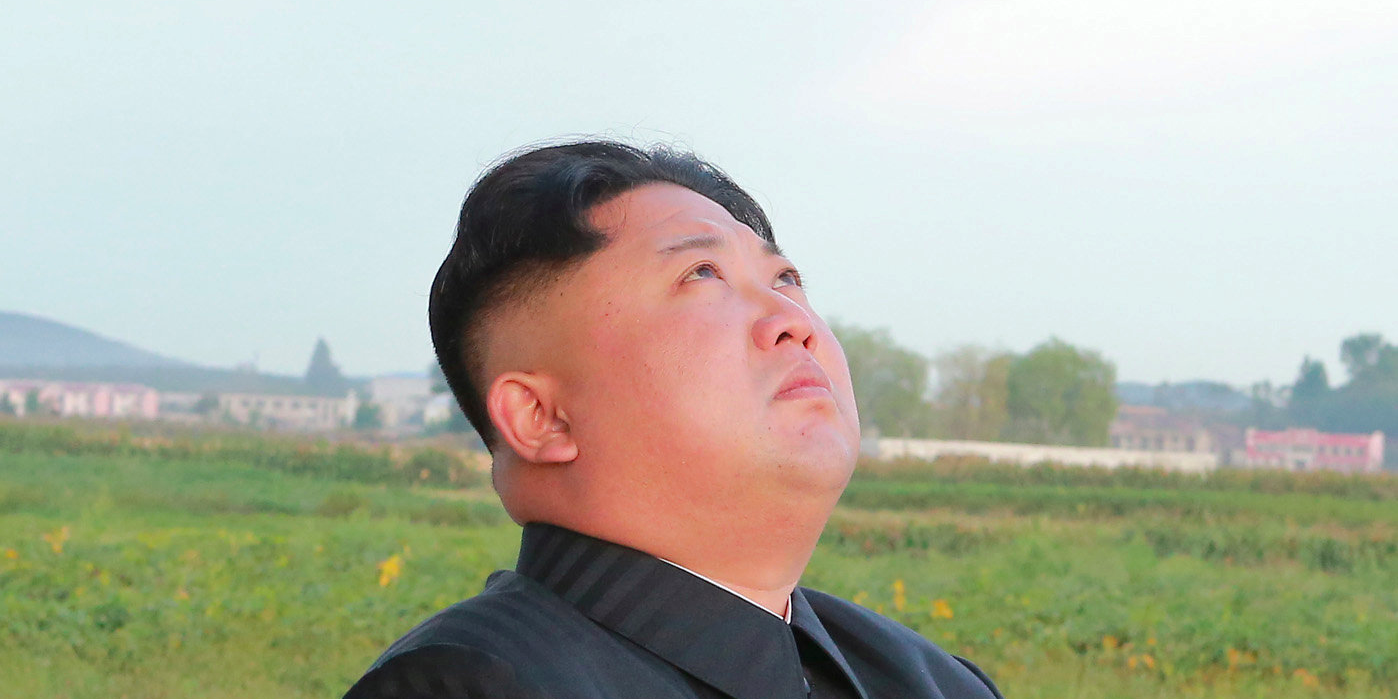- Monday is Kim Jong Un’s 34th birthday.
- The day isn’t a national holiday, unlike his father’s and grandfather’s birthdays.
- An expert on North Korea told Business Insider it was too cold and expensive to celebrate his birthday right now.
- Others say the lack of celebration could indicate growing discontent among citizens.
Monday is Kim Jong Un’s 34th birthday – but nobody in North Korea is celebrating with him.
The country’s official calendar shows it as a normal workday, according to the BBC.
North Korea has attempted to cover up Kim’s birthday in the past.
The former NBA star Dennis Rodman sang “Happy Birthday” to Kim at a basketball game in Pyongyang on the day in 2014. But citizens were told Rodman sang Kim “a special song,” with no mention of his birthday.
As North Korea regularly threatens anyone who insults Kim and throws massive parties to celebrate nuclear tests, it may seem bizarre that Pyongyang isn't pulling out all the stops for its leader.
Experts have posited various reasons for the silence on Kim's birthday - and some could spell disaster for his government.

It's too cold and expensive to celebrate
Professor Hazel Smith, a researcher at the School of African and Oriental Studies in London who lived in North Korea from 1998 to 2001, said it was "not very surprising" that the country wasn't marking Kim's birthday.
"Kim Jong Un is treated today as the supreme leader whose words are automatically seen as authoritative because he has the familial lineage of the Kim family," Smith said, adding that the birthdays of Kim's grandfather and father, Kim Il Sung and Kim Jong Il, are already designated national holidays.
"North Korea's propagandists don't need another day to emphasise the point," she said.
Smith also said that national celebrations were costly to organise and that it was too cold to hold outdoor parties this time of year.
"These celebrations for these national days are also very expensive and involve thousands of people, and January provides the coldest temperatures of the year regularly falling to -25 centigrade," she said. "It's not very feasible to organise yet another set of parades when they have February 16" - Kim Jong Il's birthday celebration - "to plan for."
There's growing discontent within the country

Another reason North Korea isn't celebrating Kim's birthday could be because of his unpopularity within the country as a result of sanctions.
The UN approved multiple rounds of economic sanctions against Pyongyang last year as punishment for its nuclear development.
Daily NK, a news site based in South Korea, last month quoted a source in North Korea's South Pyongyang province as saying:
"International sanctions, especially those instituted after the 6th nuclear test in September, have caused a lot of hardship for workers with many losing their jobs as a result of the gradual slowing of coal exports. So public opinion of Kim Jong Un has dropped to a new low.
"As the government pushes propaganda about its nuclear and missile development while even the more successful merchants are losing jobs and going hungry this year, people would only ridicule Kim Jong Un if they saw his birthday had been made a holiday."
The source added, however, that government authorities would still "conduct lectures" and "distribute snacks to children" on Monday.
Nevertheless, the extent of Kim's popularity remains unknown.
"I don't think we know anything for sure about his popularity one way or another apart from it's extremely dangerous to speak out against him," Aidan Foster-Carter, an honorary lecturer at Leeds University who's an expert on North Korea, told The Independent.
Maybe Kim's cult of personality just isn't big enough

Experts also say Kim hasn't amassed a large enough cult of personality to have his birthday designated a national holiday.
Owen Miller, a Korea expert at SOAS, told The Independent that North Korea "might consider it too soon to take Kim Jong Un's personality cult up to that level."
"Kim Jong Il was anointed as successor [to Kim Il Sung] in 1980, and his cult was built up long before he became leader," Miller added. "Kim Jong Un, on the other hand, was only introduced to North Koreans a year or two before he became leader in 2011."
Some experts even suggested that Kim was trying to reinvent himself as a man of the people and that designating his birthday as a national holiday would hamper that image.
The Guardian reported in September that Kim Yo Jong, Kim Jong Un's sister who's a senior government minister, had been trying to "create a cult of personality around her brother that included presenting him as a benevolent, accessible leader."

